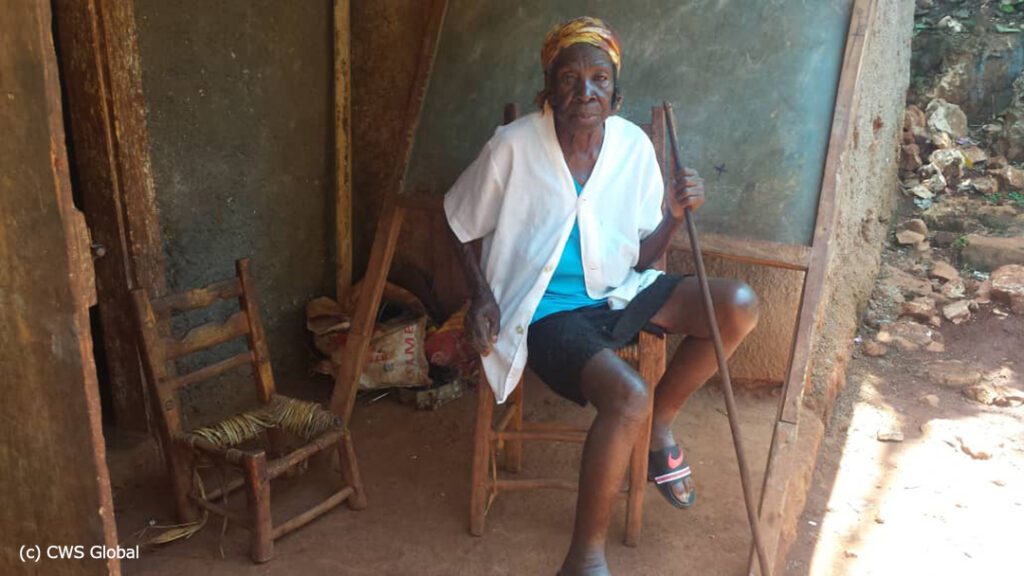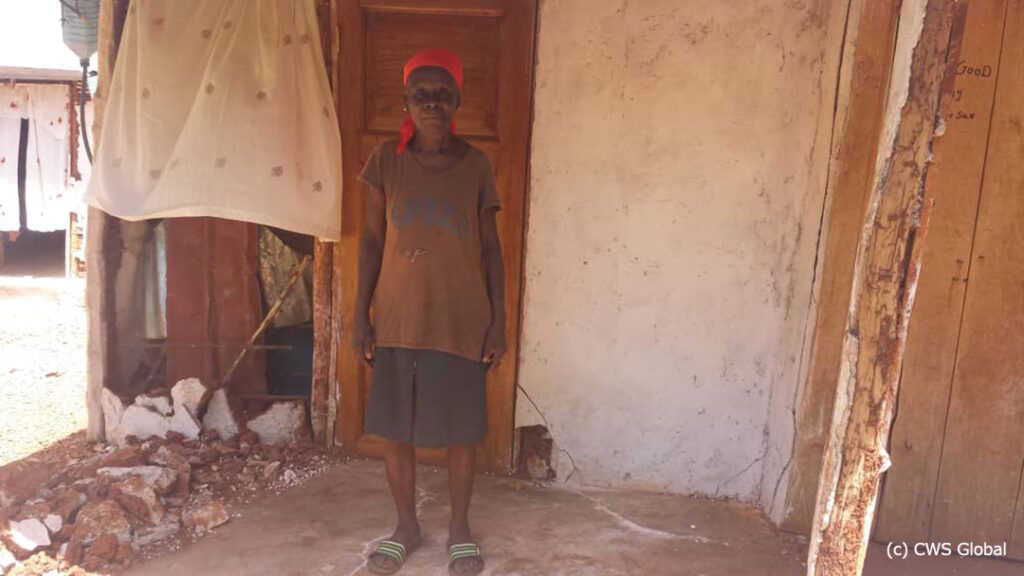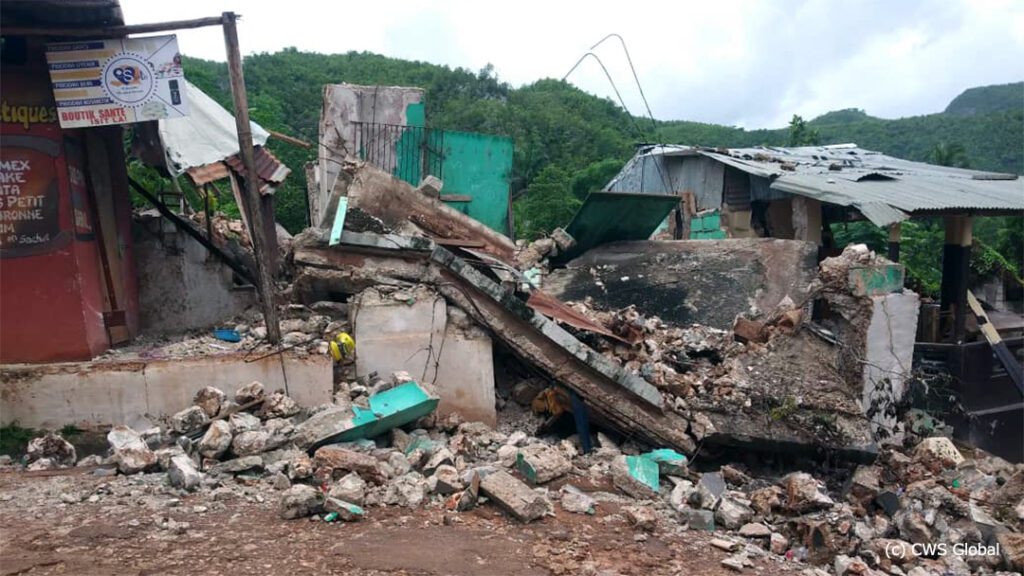

“My house is destroyed, I have no drinking water, there is no water for laundry or washing. We remain vigilant, keeping an eye open as I think it can happen again at any time. I lost my business and all my income. I have no shelter, how can I talk about safety? I need water, shelter, and food.”
Before the earthquake, Haiti was already in an incredibly fragile situation. Following the assassination of the President in July 2021, gang violence escalated sharply displacing thousands. More than four million people require food aid due to acute food insecurity.

The health system is already overburdened by the COVID-19 crisis – in a country where less than one percent of the population has been vaccinated. All of which combines for a complex humanitarian situation that is in urgent need of support.
